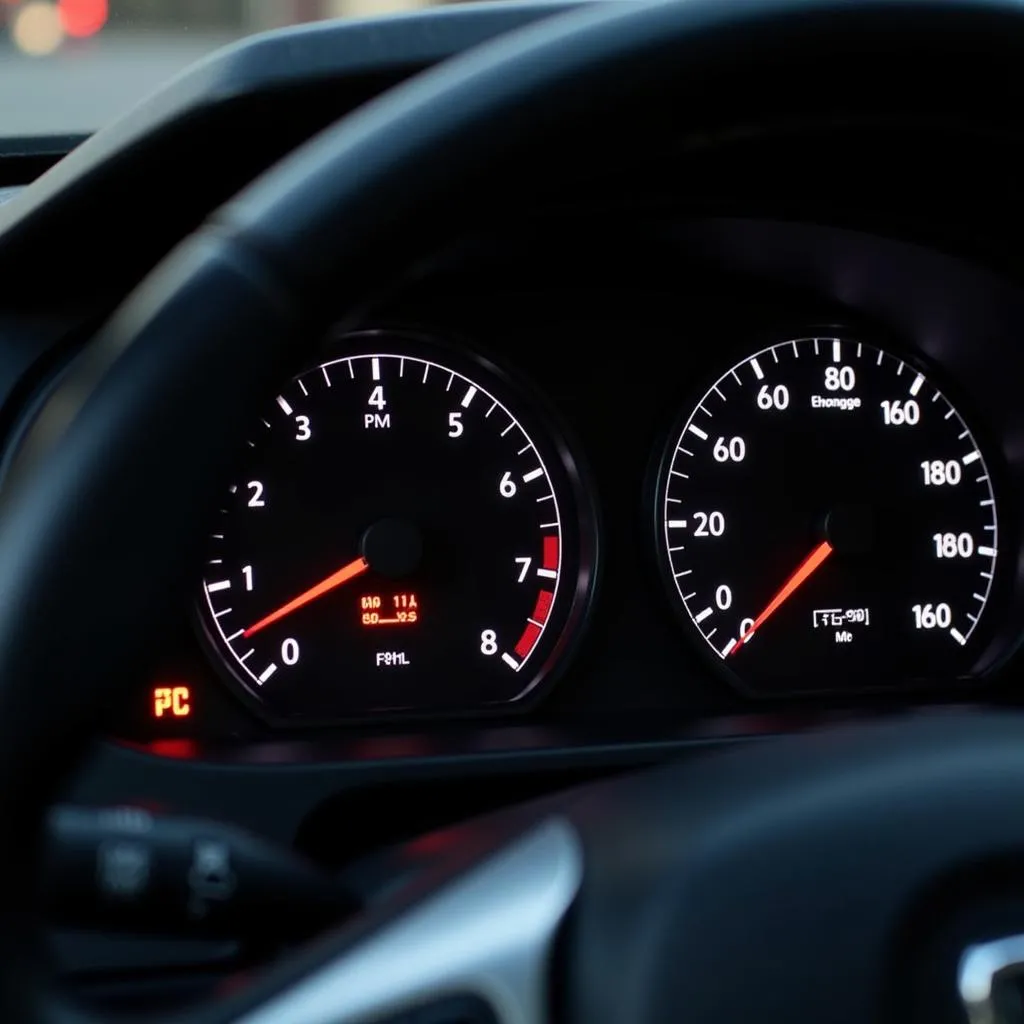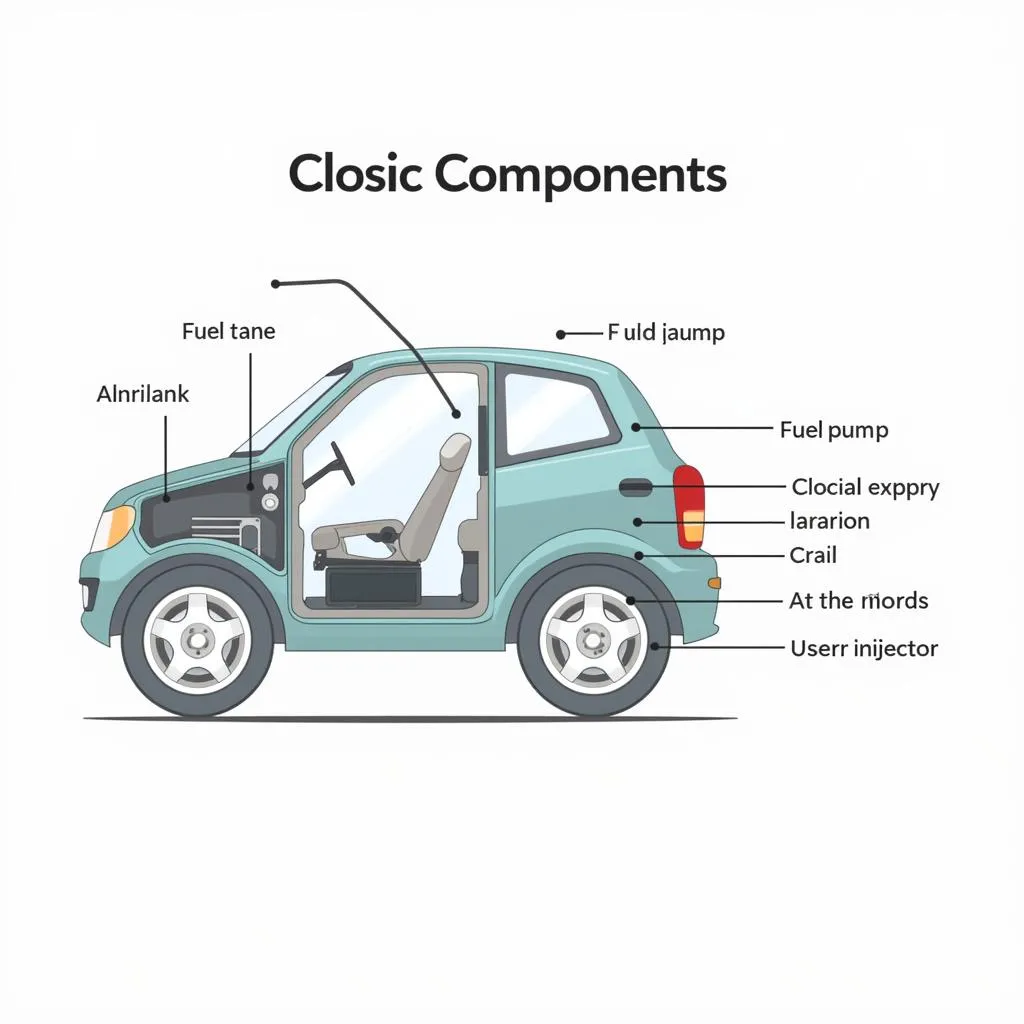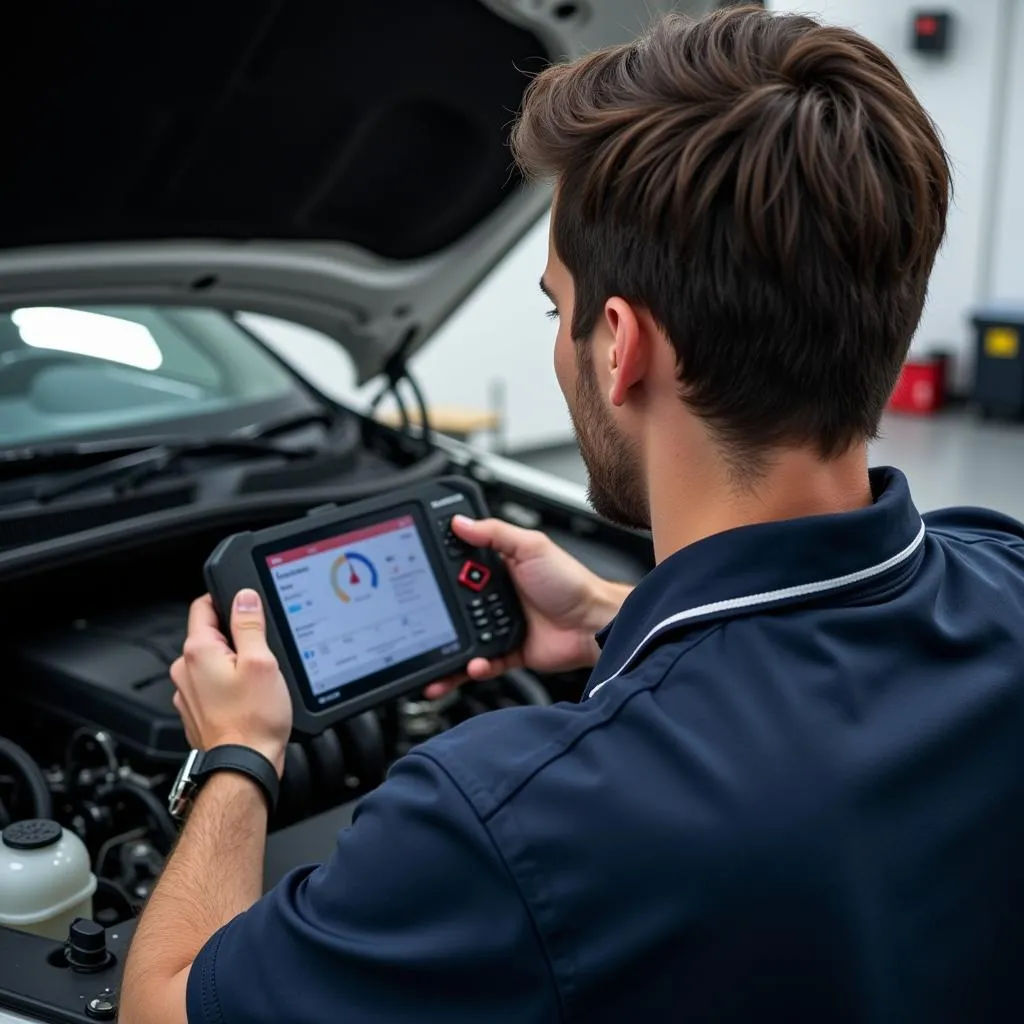You turn the key, the engine cranks, but your car won’t start. This frustrating scenario is a common problem for car owners, and it can be caused by a variety of factors. This article will delve into the common reasons why your car will turn over but not start, helping you diagnose the issue and find a solution.
 Car Engine Cranking But Not Starting
Car Engine Cranking But Not Starting
Understanding the Basics: Cranking vs. Starting
Before we dive into the causes, it’s crucial to understand the difference between “cranking” and “starting.” When you turn the key or push the start button, you’re activating the starter motor. This motor spins the engine, a process known as “cranking.” However, cranking alone doesn’t start your car. For the engine to “start,” a proper air-fuel mixture needs to ignite in the combustion chamber, initiating the combustion cycle.
If your car is cranking but not starting, it means the starter motor is doing its job, but something is preventing the engine from igniting the air-fuel mixture.
Common Culprits Behind a Car That Won’t Start
Here are some of the most frequent reasons why your car might be turning over but not starting:
1. Fuel System Issues
A lack of fuel or issues with the fuel delivery system are among the most common culprits:
- Empty Fuel Tank: While it seems obvious, it’s worth checking your fuel gauge. Sometimes, a faulty gauge or simply forgetting to refuel can lead to this issue.
- Faulty Fuel Pump: The fuel pump draws fuel from the tank and sends it to the engine. A malfunctioning fuel pump can interrupt this process.
- Clogged Fuel Filter: The fuel filter traps dirt and debris, preventing them from reaching the engine. Over time, it can get clogged, restricting fuel flow.
- Fuel Injector Problems: Fuel injectors spray a fine mist of fuel into the combustion chamber. If they are clogged or malfunctioning, the engine won’t receive the fuel it needs.
 Car Fuel System Components
Car Fuel System Components
2. Ignition System Malfunctions
The ignition system is responsible for creating the spark that ignites the air-fuel mixture. Problems here can prevent your car from starting:
- Dead Battery: While the battery powers the starter motor, a weak battery may not have enough power to also energize the ignition system.
- Faulty Spark Plugs: Worn-out or fouled spark plugs won’t produce a strong enough spark for ignition.
- Bad Ignition Coil: The ignition coil provides the high voltage needed for the spark plugs to fire. A failing ignition coil can disrupt this process.
- Defective Ignition Switch: Though less common, a faulty ignition switch might not send the signal to start the ignition process.
3. Air Intake and Sensor Problems
The engine needs a precise mix of air and fuel to start. Issues with air intake or sensors can disrupt this balance:
- Clogged Air Filter: A severely clogged air filter restricts airflow to the engine, starving it of oxygen needed for combustion.
- Malfunctioning Mass Air Flow (MAF) Sensor: The MAF sensor measures the amount of air entering the engine. If it provides inaccurate readings, the engine won’t receive the correct air-fuel mixture.
4. Other Potential Issues
Beyond the common culprits, several other issues can prevent your car from starting:
- Immobilizer System Malfunction: Modern cars have immobilizer systems that prevent theft. If the system malfunctions and doesn’t recognize your car key, it can prevent the engine from starting.
- Timing Belt or Chain Problems: The timing belt or chain synchronizes the engine’s valves and pistons. If it breaks or slips, the engine won’t start.
- Engine Mechanical Failure: While less likely, severe engine problems like a seized engine or internal damage can prevent starting and often require extensive repairs.
Diagnosing the Problem: Where to Start
“My car will turn over but not start” is a statement we hear frequently from car owners at DiagXcar. Diagnosing the root cause can feel overwhelming, but a systematic approach can help:
1. Check the Obvious:
- Is there enough fuel? This seems basic, but you’d be surprised how often it’s overlooked.
- Are any warning lights illuminated on the dashboard? Check for the “check engine” light, battery light, or immobilizer warning.
2. Listen Carefully When You Try to Start the Car:
- Rapid clicking sound? This usually indicates a weak or dead battery.
- Single click or no sound when turning the key? This could point to a starter motor issue.
- Does the engine crank normally but not fire up? This suggests a problem with the fuel, ignition, or air intake system.
3. Use Your Senses:
- Can you smell gasoline? A strong fuel odor could mean the engine is flooded with fuel, or there’s a leak.
- Is there visible smoke? Smoke from under the hood usually indicates an electrical issue or overheating.
When to Seek Professional Help
While some causes, like a dead battery, can be easy to address, others require specialized knowledge and tools. If you’re uncomfortable troubleshooting or can’t pinpoint the problem, it’s best to seek professional help.
Run PC diagnostics can provide valuable insights into your car’s health, but keep in mind they aren’t always a magic bullet.
A qualified mechanic can accurately diagnose the issue using advanced diagnostic tools and recommend the appropriate repair.
Preventative Measures: Keeping Your Car Starting Strong
- Regular Maintenance: Following your car’s recommended maintenance schedule is crucial. Regular oil changes, filter replacements, and inspections can prevent many starting problems.
- Battery Care: Have your battery tested regularly and replace it if it’s nearing the end of its life.
- Quality Fuel and Additives: Using good quality fuel and fuel system cleaners can help keep your fuel system clean and running efficiently.
 Mechanic Inspecting Car Engine
Mechanic Inspecting Car Engine
Conclusion
A car that turns over but won’t start can be a frustrating experience. By understanding the common causes, following a logical troubleshooting process, and knowing when to seek professional assistance, you can get back on the road quickly and safely. If you suspect a problem with your car’s starting system, don’t hesitate to contact a trusted mechanic or visit DiagXcar for further assistance.
Remember, regular car maintenance is key to preventing many starting problems. By taking care of your vehicle, you can enjoy hassle-free driving for years to come.